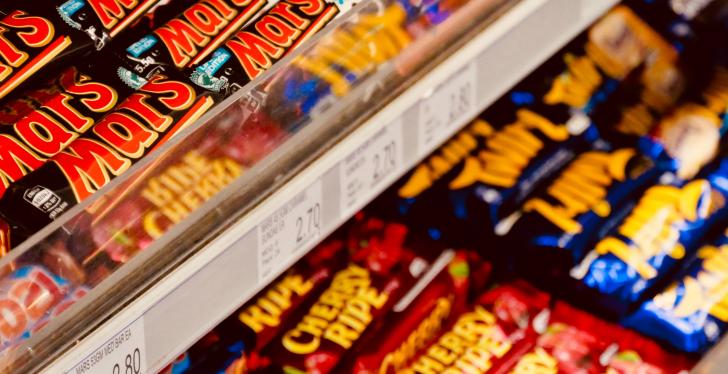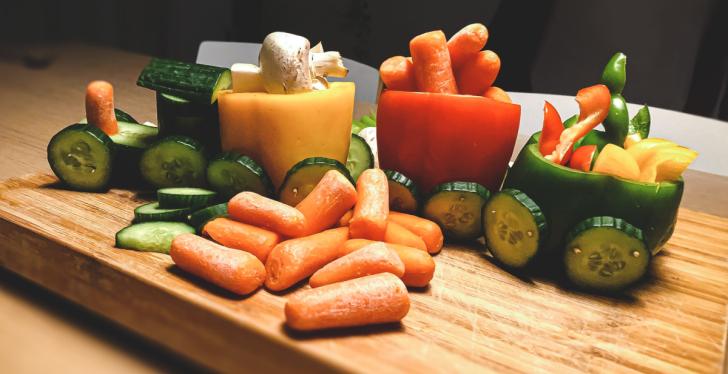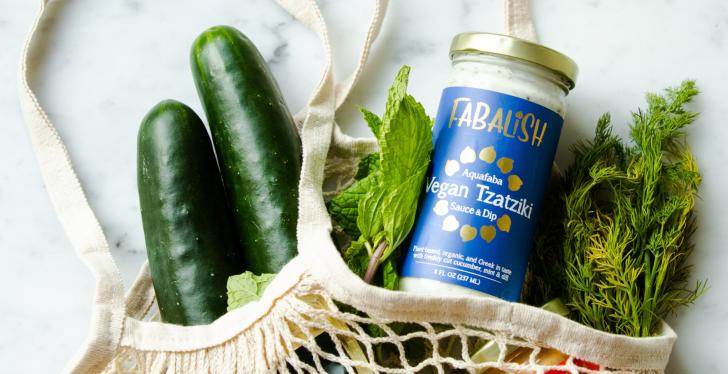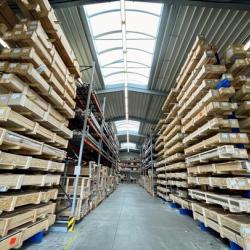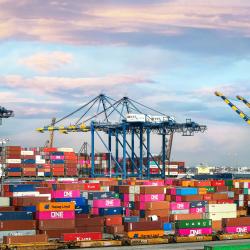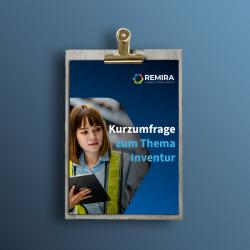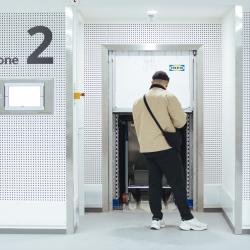No more needless packaging waste in food retailing
Of washable bags, natural branding and boxes made out of grass
Migros
As the first supermarket of its kind, Rewe abolished plastic bags. Numerous other supermarkets followed suit. Now the supermarket chains offer bags made out of paper and cotton as well as reusable shopping bags. The Federal Minister for the Environment Hendricks is delighted to see this; retailers increase their commitment to sustainability. Yet reality paints a different picture: the use of alternative materials shifts the environmental issues and creates a false image.

Are cotton, bioplastics or paper really better than plastic material? This warrants an emphatic “No“. The production of unbleached paper bags, in particular, requires huge amounts of energy and water. In addition, chemicals that are harmful to the environment are used to ensure stability. The bag is also only biodegradable in an unbleached and unprinted state. Cotton cultivation is also harmful to the environment thanks to high water consumption and the use of pesticides. That’s why the use of cotton shopping bags only makes sense if the plants come from environmentally sustainable production and customers utilize them repeatedly. Bioplastic bags are made from agricultural crops and by-products that are treated with pesticides, herbicides, and fertilizers, What’s more, the bags can only be disintegrated under industrial conditions.
A closer look inside supermarkets also reveals that abolishing disposable plastic bags is not all there is to this issue. After all, there are still the thin single-use plastic bags you see in every produce department. Added to this are packaged organic products and the steadily increasing convenience and grab-and-go portfolio that entices consumers with its prepacked salad mixes or cut and peeled pineapples. The list goes on with toothpaste in cardboard packaging or disposable fruit juice bottles – the packaging frenzy seems to know no bounds. Having said that, there are already some clever approaches to reducing these vast amounts of trash.

Veggie bags – it’s all in the bag
Supermarket chains like Migros, Alnature or denn’s Biomarkt present an alternative to the thin plastic produce bags by offering reusable bags to package fruits and vegetables. The bags made by veggiebags, take5nets or fregie are made out of 100 percent eco-friendly polyester, are transparent and relatively lightweight. So does this actually mean we fight plastic with plastic? Yes, but these bags can be easily cleaned in the washing machine at 30 degrees Celsius. And this makes them overall more environmentally friendly. In a press release, Migros states, “During the testing stage, we sold over 200,000 veggie bags. If each of the Veggie Bags that was sold during the pilot phase is reused twenty times, it would eliminate more than four million disposable plastic produce bags.“
However, the press release does not mention that the maker of veggiebag, which supplies Migros with the bags has its production site in China. Needless to say, the long journey also increases carbon emissions. But what would a good alternative be without offering yet another alternative? ChicoBag makes its bags using recycled colorless PET bottles, for example, and suppliers like Re-Sack or Greenderella apply the same principle using organic cotton, while their bags are even more lightweight than some plastic varieties.
Anyone concerned about the weight of these bags and whether they negatively impact the weight on the scale: customers can obviously decide whether they weigh the products first and then place them into the small bags.
No more plastic packaging for fruits and vegetables
Organic products, in particular, are always packaged in plastic. Bell peppers, tomatoes or cucumbers are surrounded by plastic sleeves or placed in plastic shells. The reason for this is EU implementing regulations pertaining to ecological/organic products. They stipulate that organic and conventional products have to always be distinguished. This is why organic fruits and vegetables are packaged and labeled as such.
The Rewe Group is once again a trailblazer in finding alternative solutions. Since the end of March, discount supermarket chain Penny has started to gradually only purchase bananas that are not shrink-wrapped in foil but are marked with a label. Rewe’s organic cucumbers have been labeled with stickers for quite some time already but only if they are from Germany. Meanwhile, Spanish cucumbers continue to have plastic covers, also in part to avoid possible damages incurred during transport.

Since March 2017, avocados and sweet potatoes at both chain supermarkets have been the first products that receive “natural“ labels (natural branding) within the scope of a pilot project. With the help of a high definition laser, the pigments from the outer layer of the skin of the product are removed and branded with a logo. According to the manufacturer and the company, the branding does not impact the taste, quality or life of the product and is said to be an option on both fruits with edible and non-edible shells. However, consumer advocates advise caution because the method has not yet been thoroughly tested. If it turns out to be harmless, it would be a step in the right direction, says Armin Valet of the Consumer Advice Center in Hamburg in an interview with Spiegel Online.
The world needs new raw materials
According to the legislator, the recycling rate for packaging waste is said to drastically increase in the coming years. For example, the rate for plastics is currently under 40 percent; starting in 2022, 63 percent of all plastics are meant to be recycled. The German Environmental Aid (Deutsche Umwelthilfe) demands: returnable bottles have to be actively promoted and packaging has to become more expensive – for instance by raising an environmental and resource tax. But is the latter the right way?
Even though recycling already begins when packaging materials are being produced, alternative raw materials should also be taken into consideration: industry and research facilities are currently working on finding new methods to produce packaging made out of renewable and biodegradable raw materials like soy, corn or sugar cane. Last year, U.S. researchers caused a sensation when they produced edible packaging made from the milk protein casein. It comes in handy that the raw material is practically right on your doorstep: the Creapaper Company produces boxes and packaging that are made up of 50 percent grass and partially replace the previously used wood pulp. That’s why this product is also suitable for food packaging.
Speaking of food packaging. Unfortunately, packaging primarily provides space to display extensive printed advertising. Research has shown that print colors, and especially those containing mineral oil, contain substances that are hazardous to health. Once the cardboard boxes are recycled, the unwanted substances return to the paper recycling loop. That’s why only certified and approved substances should be included in print colors for print on food packaging.

Where do we go from here?
Ultimately, there is no truly satisfactory solution. Each material has its own pros and cons. That’s why fingers should not just be wagged at the retail industry, but also at the packaging industry, food manufacturing and above all at the consumer. After all, the latter is the one who disposes of the materials or decides on their useful life. From a retailer’s perspective, offering alternatives is the first step to also hold customers accountable. Conversely, this obviously also must apply to packaging manufacturers. After all, even the plastic-eating caterpillars of the wax moth Galleria mellonella variety won’t be able to put an end to our excessive packaging culture in the future.
channels: sustainability, packaging, packaging technology

